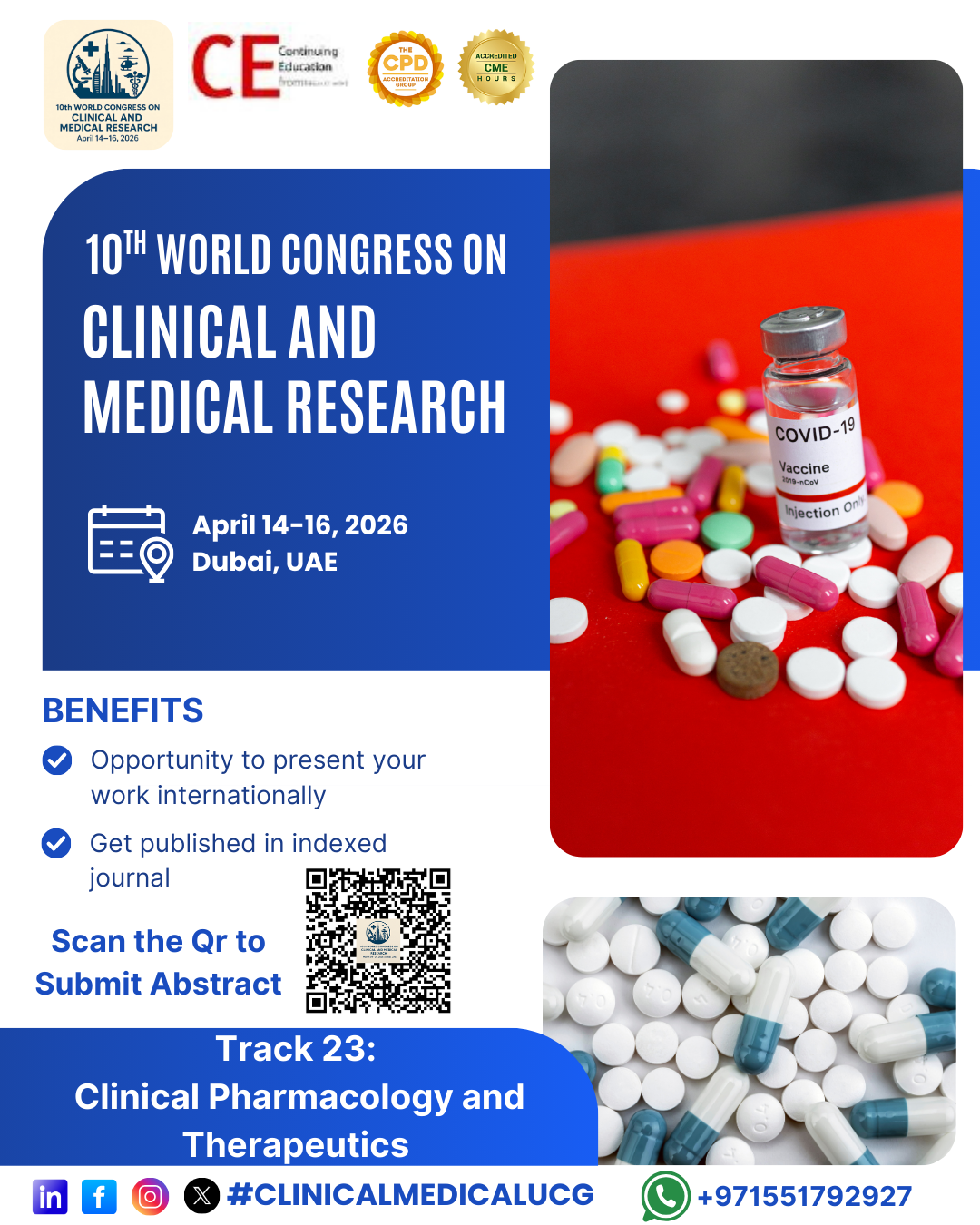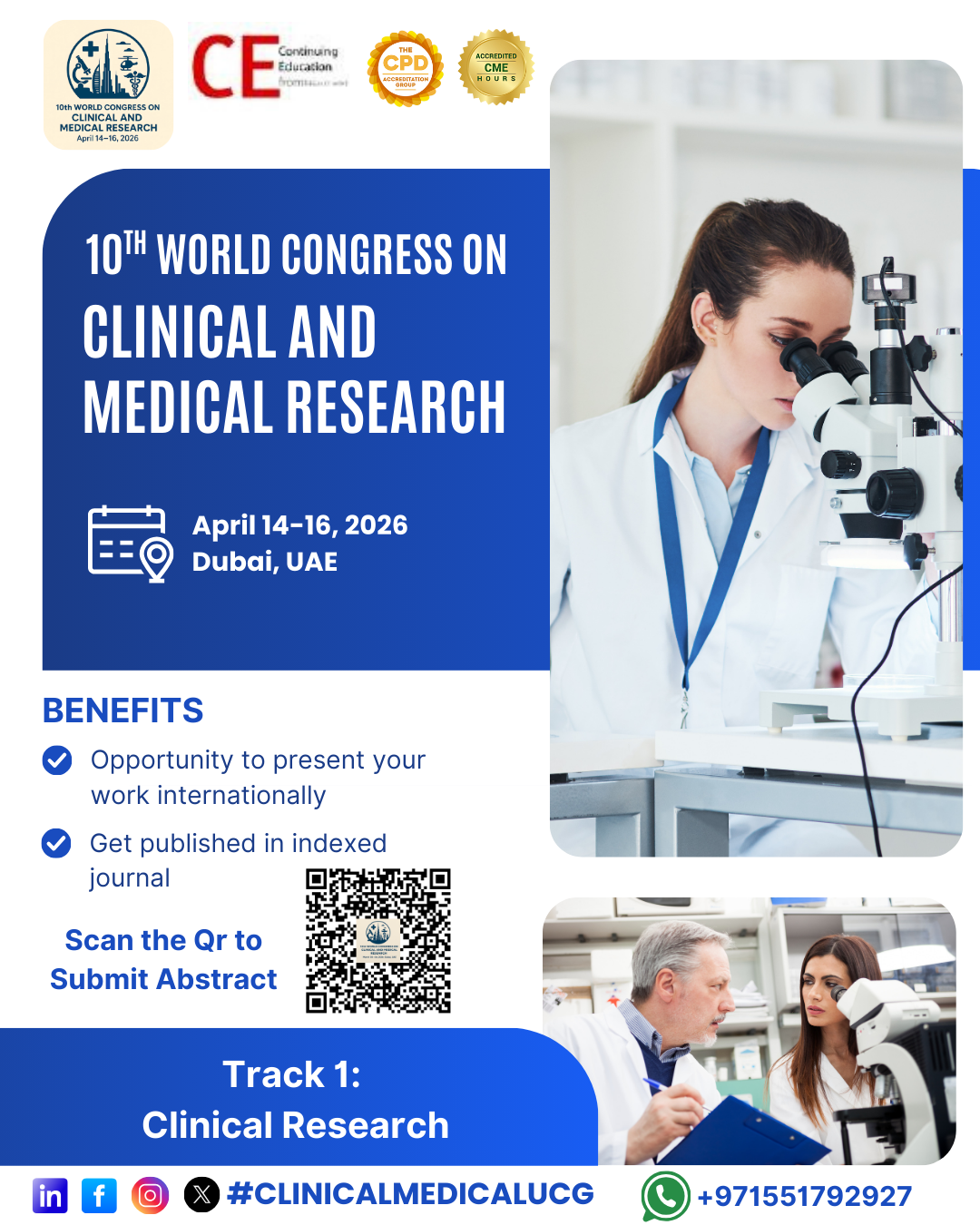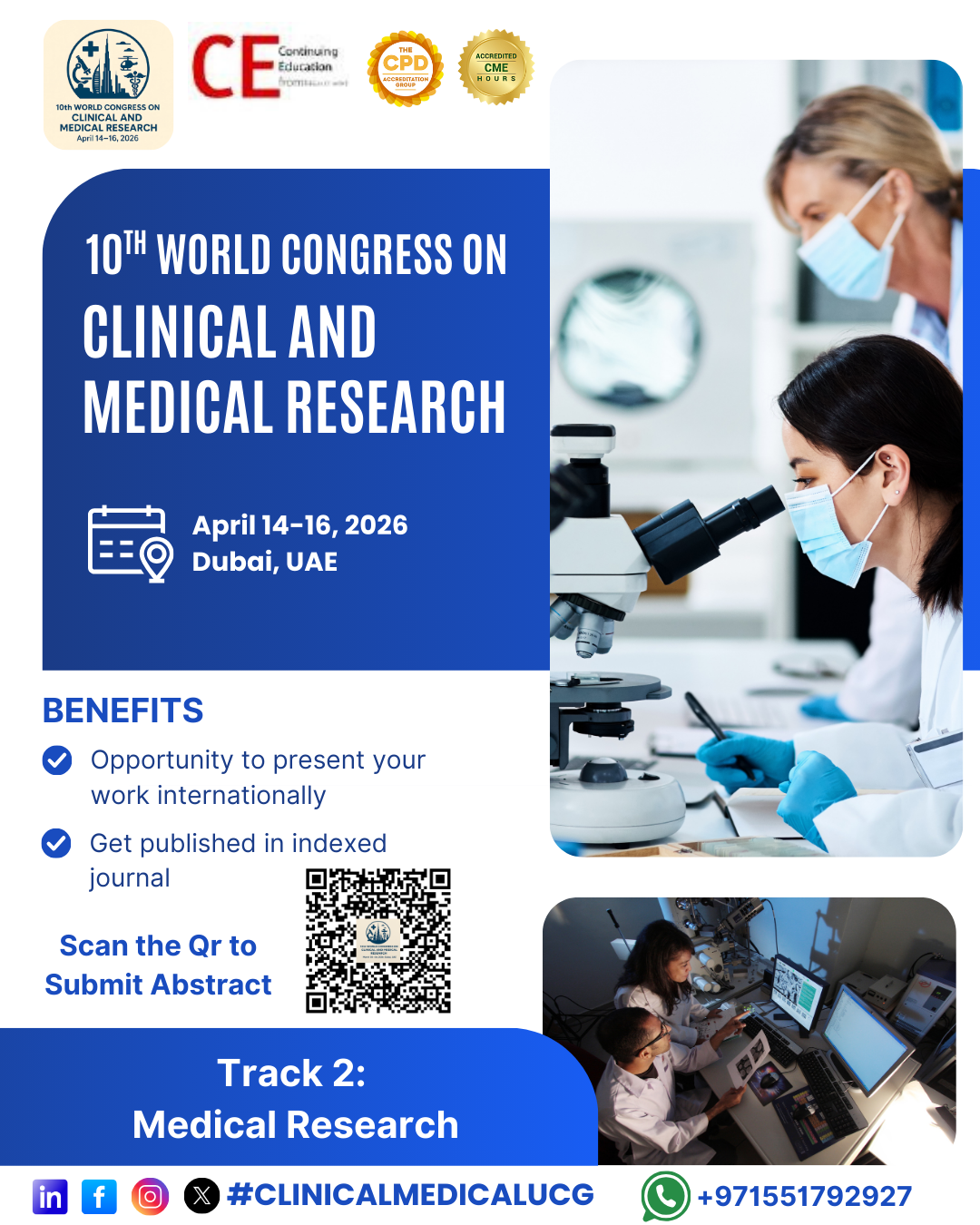



Clinical research is a critical field of medical science focused on studying health...

Medical research is a broad and essential field dedicated to advancing knowledge of...

Clinical Pharmacology and Therapeutics is the science of how drugs interact with the human body in clinical settings. It focuses on understanding the mechanisms of action, pharmacokinetics (absorption, distribution, metabolism, excretion), and pharmacodynamics (effects and responses) of medications, with the goal of optimizing drug efficacy, minimizing adverse effects, and tailoring therapies to individual patients.
Pharmacokinetics and Pharmacodynamics · Therapeutic Drug Monitoring · Adverse Drug Reactions and Drug Safety · Pharmacogenetics and Pharmacogenomics · Drug-Drug and Drug-Food Interactions · Rational Prescribing and Dosing Strategies · Special Population Pharmacology (e.g., Renal or Hepatic Impairment) · Clinical Trial Pharmacology · Biologics and Monoclonal Antibodies · Precision and Personalized Therapeutics · Pediatric and Geriatric Pharmacology · Drug Metabolism and Transporters · Dose Optimization and Modeling · Regulatory and Ethical Considerations in Drug Use